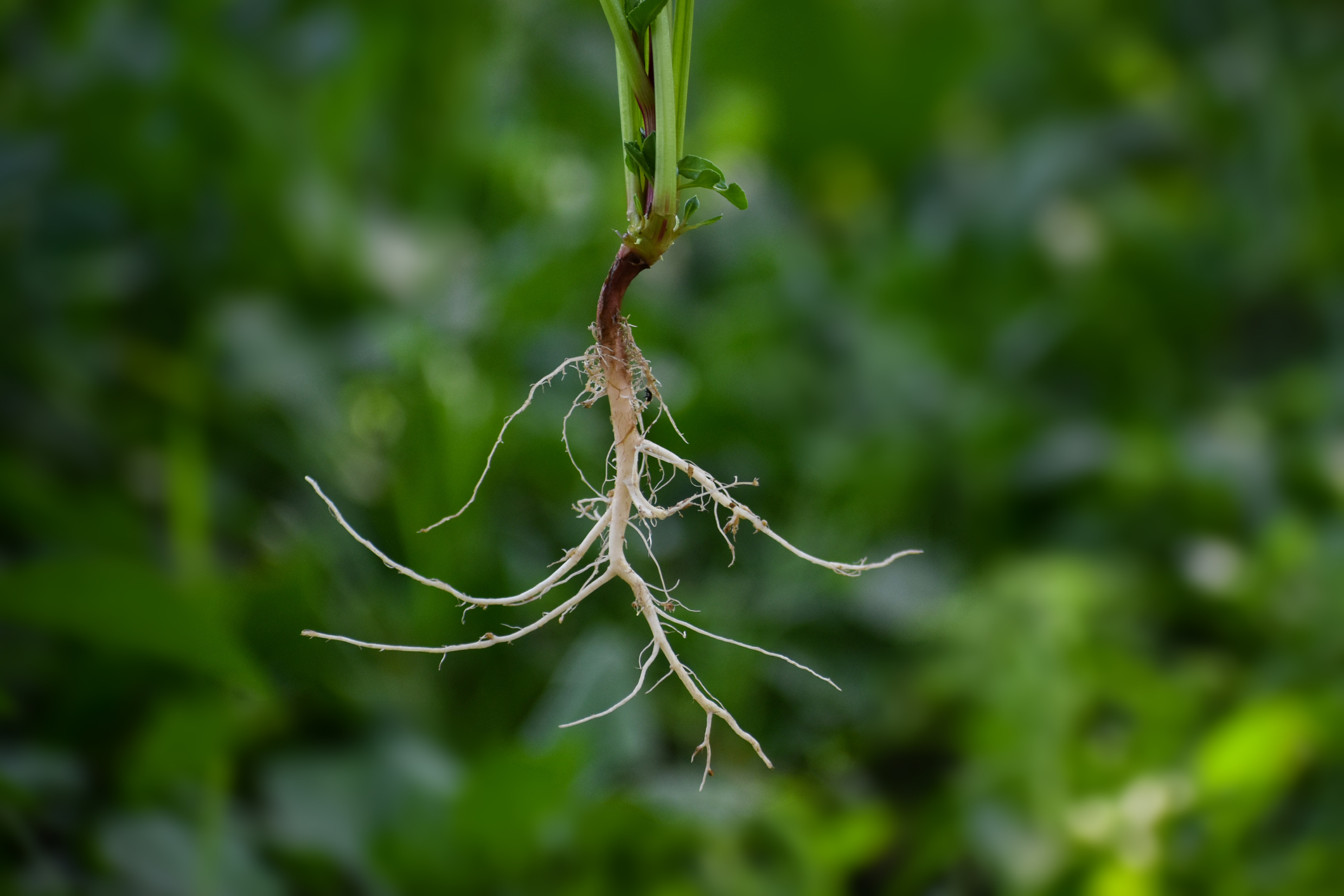In this blog post, we will explore why healthy roots are absolutely essential for crop growth and productivity. A plant’s roots serve as the main pathway through which water and nutrients are absorbed from the soil, and without robust, vigorous roots systems, plants cannot absorb enough nutrients to support their growth and yield.
As we explore what healthy and unhealthy roots look like, we’ll also discuss why soil testing is vital and how using TELONE™ before planting can contribute to long term healthy plant root development.
What Do Healthy Roots Look Like?
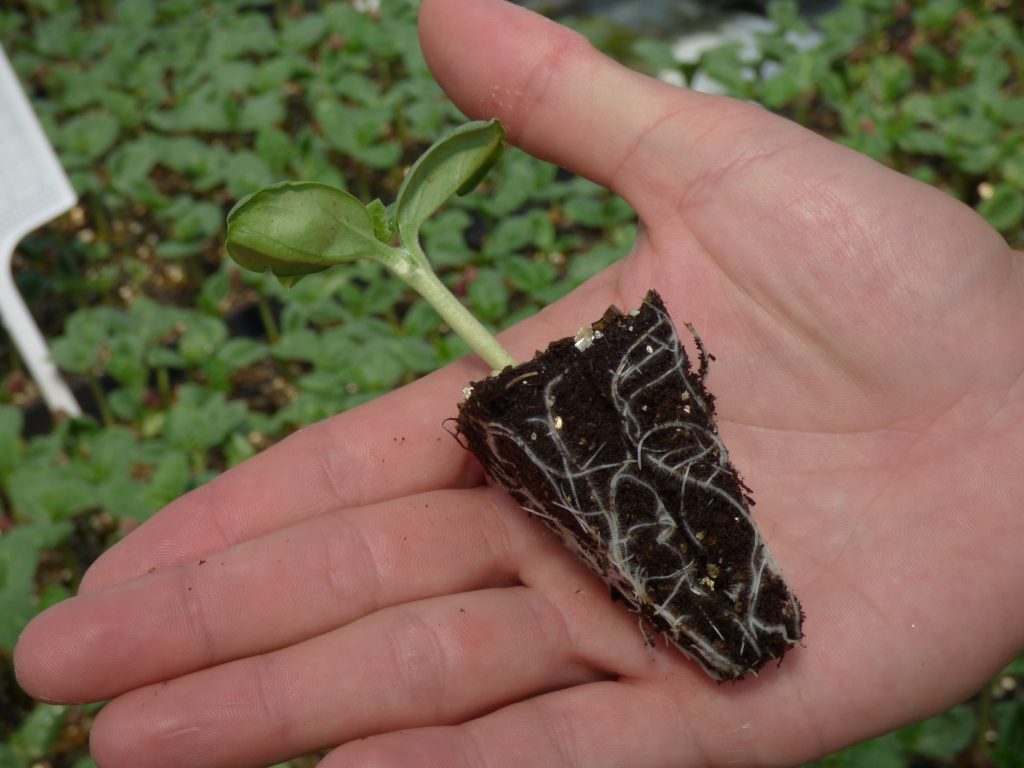
Example of healthy roots
Healthy roots are essential for agriculture because they play a vital role in a plant’s ability to absorb nutrients, water, and oxygen from the soil. The ability of a plant to uptake water in nutrients unimpeded is vital to its ability to grow stronger and ultimately, produce more yield. Plants with healthy roots can also better resist pests, diseases, and environmental stresses.
Healthy plant roots are typically white, firm, and free from any visible signs of damage or disease. They should also have a healthy root-to-shoot ratio, with an extensive root system to support the above-ground plant structure.
Soil health has a significant impact on the health of plant roots. Healthy soil provides a balanced mix of organic matter, nutrients, and minerals that support root growth and development. Soil that is compacted, poorly drained, or contaminated with pollutants can inhibit root growth and increase the risk of root disease.
Root Rot and Other Root Problems VS. Healthy Roots
Root rot and other root problems occur when roots are exposed to excess moisture, poor soil conditions, or disease-causing organisms. Symptoms of root problems may include yellowing leaves, stunted growth, wilting, and even plant death. In contrast, healthy roots have a robust root system with good root development and are free from disease.
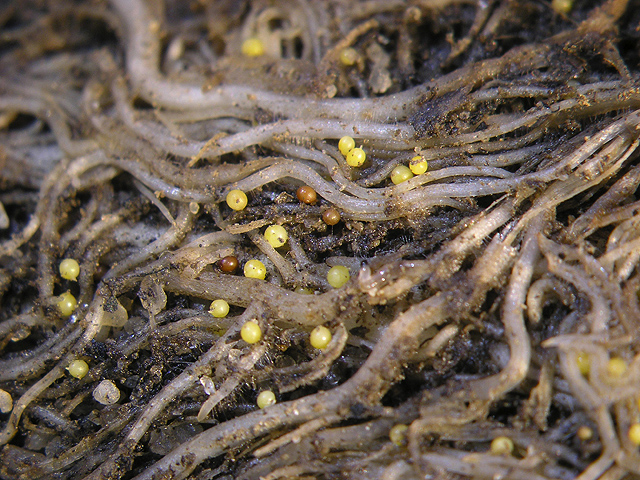
Potato Roots infested with cyst nematodes
Symptoms that plant roots are not healthy include:
- Yellowing or wilting leaves: Unhealthy roots may not be able to absorb enough water and nutrients from the soil, leading to yellowing or wilting leaves.
- Stunted growth: Poor root development can lead to stunted growth, with plants failing to reach their full potential size.
- Root decay or discoloration: Roots that are soft, mushy, or have a foul smell may be suffering from root decay caused by fungal or bacterial pathogens. Roots that are discolored or have lesions can also be a sign of disease.
- Reduced or abnormal root development: Plants with unhealthy roots may have reduced or abnormal root development, with roots appearing weak, brittle, or distorted.
- Poor anchorage: Weak or damaged roots can cause plants to be less anchored in the soil, making them more susceptible to falling over in strong winds or heavy rain.
- Reduced yield: Plants with unhealthy roots may produce a lower yield or smaller fruits or vegetables compared to healthy plants.
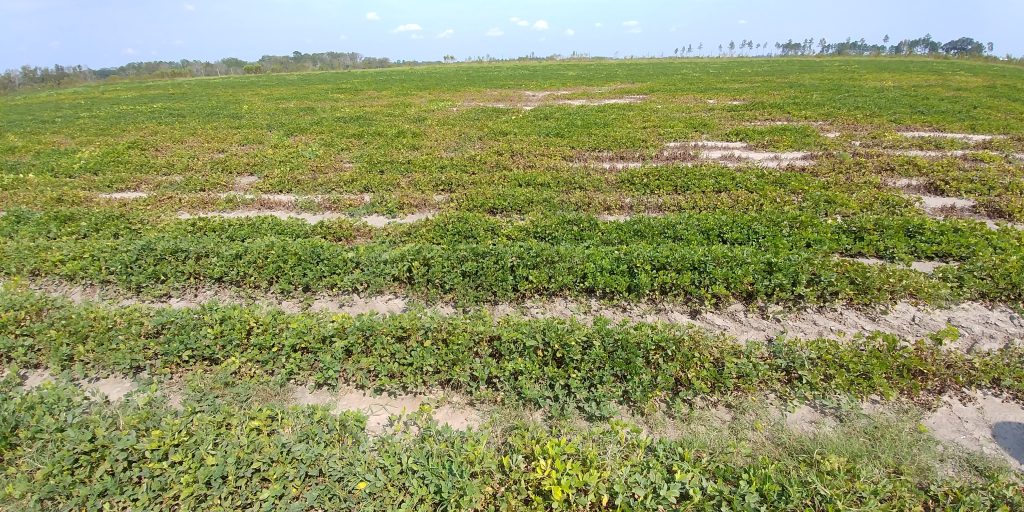
Example of patchy nematode damage in field
If you notice any of these symptoms in your plants, it is important to investigate the root system to determine the cause of the problem and take appropriate measures to address it. Part of this process is also testing your soil to better understand the exact cause of your specific issue, so you are better able to address the problem with the correct solution.
How to test the soil to understand root health
Soil testing can provide valuable information to growers about soil health and the factors that may be affecting plant root health. A professional soil test from a certified lab can provide information about the soil’s nutrient content, pH level, organic matter content, and other physical and chemical properties that can impact root health. By understanding the soil conditions that are affecting the plant’s roots, growers can take corrective measures to improve soil health and promote healthy root growth.
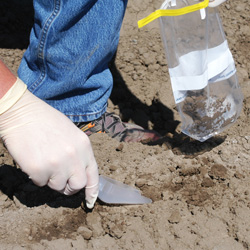
Here are some ways growers can use soil testing to learn about root health:
- Determine soil pH: Soil pH can significantly impact plant root health. A soil test can determine the pH level of the soil and provide recommendations for adjusting the pH if necessary.
- Test for nutrient deficiencies: A soil test can identify nutrient deficiencies in the soil that may be affecting root health. Growers can then apply the appropriate fertilizers to correct the nutrient imbalance and promote healthy root growth.
- Check for soil compaction: Soil compaction can inhibit root growth and make it difficult for roots to absorb nutrients and water. A soil test can identify areas of soil compaction that may need to be addressed with tillage or other management practices.
- Test for soil-borne diseases: Soil tests can detect the presence of soil-borne diseases that can damage plant roots. By identifying the pathogens present in the soil, growers can take steps to prevent disease and promote healthy root growth.
By using soil testing to identify soil health factors that may be impacting root health, growers can take proactive steps to improve soil conditions and promote healthy, productive plants.
How TELONE™ Contributes to Healthy Roots
1,3-dichloropropene, sold under the brand name TELONE™, can help with plant root health by controlling certain soil-borne pests and diseases. When used as a pre-plant soil fumigant, TELONE™ can effectively eliminate soil pathogens, nematodes, and some weeds that can harm plant roots and reduce crop yield.
By reducing the pest and disease pressure in the soil, TELONE™ can create a healthier growing environment for plant roots, which can result in stronger root systems, improved nutrient uptake, and increased crop productivity.
In addition, TELONE™ can also improve soil health by breaking down organic matter and releasing nutrients that are locked up in the soil. This can further support healthy root growth and development. Recent studies also show how using TELONE™ also increases the counts on many species of beneficial organisms like Trichoderma, and that microbial populations rebound in a short period of time post-application.
TELONE™ specifically targets plant parasitic nematodes which can have a significant impact on root health by feeding on and damaging plant roots. Nematodes are microscopic, worm-like organisms that live in soil and can penetrate plant roots to feed on their cells, tissues, and fluids. This feeding can result in significant root damage, leading to reduced nutrient uptake and plant growth.
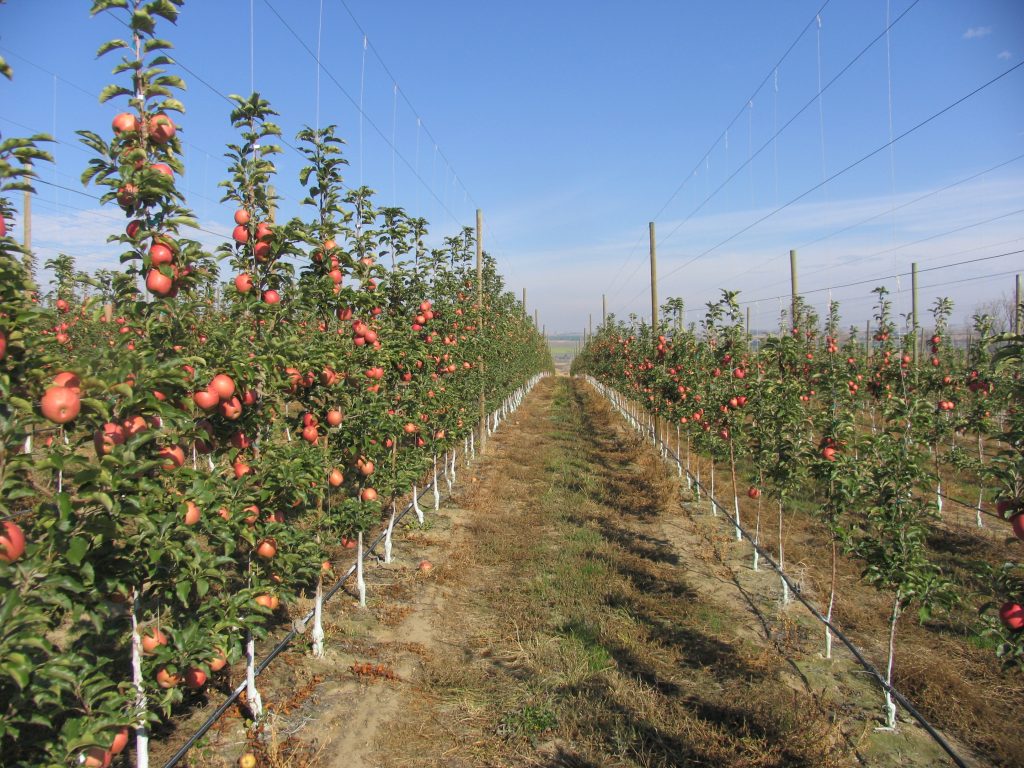
Orchard trees treated w/ TELONE™ (left) and untreated (right)
Here are some ways that plant parasitic nematodes can impact root health:
- Stunted growth: Nematodes can cause stunted growth in plants by damaging the root system, which can limit the plant’s ability to take up nutrients and water from the soil.
- Reduced yield: Nematode infestations can reduce crop yield by reducing root growth and limiting nutrient uptake.
- Root rot: Nematode feeding can cause root rot by damaging the root system, making plants more susceptible to fungal and bacterial infections.
- Increased susceptibility to other stresses: Plants with damaged roots are more susceptible to other stresses, such as drought or extreme temperatures, which can further impact their health and yield.
To manage nematode populations and promote healthy root growth, growers can use a variety of strategies, including crop rotation, planting nematode-resistant cultivars, and applying nematicides or other soil fumigants. It is important to implement an integrated approach to nematode management that combines cultural practices with chemical control measures to minimize the impact of nematodes on root health and crop productivity.
TELONE™ is the premiere pre-plant soil fumigant for effectively controlling plant parasitic nematodes in the soil, which can lead to improved root health. TELONE™ contains 1,3-dichloropropene, a chemical that has a broad spectrum of activity against soil-borne pests, including nematodes. Here are some ways TELONE™ works to improve root health against plant parasitic nematodes:
- Nematode control: TELONE™ can effectively eliminate plant parasitic nematodes in the soil, reducing their population and preventing damage to plant roots.
- Improved nutrient uptake: By controlling nematode populations, TELONE™ can improve nutrient uptake by plant roots. Healthy roots can absorb more nutrients from the soil, leading to improved plant growth and productivity.
- Reduced stress: Nematode feeding can cause stress to plant roots, making them more susceptible to other stresses such as drought or extreme temperatures. By controlling nematodes with TELONE™, plants can be less stressed and more able to handle other environmental stresses.
- Reduced disease pressure: Nematode damage to roots can make them more susceptible to soil-borne diseases. By controlling nematodes with TELONE™, plants can be less susceptible to these diseases, which can further improve root health.
It is important to note that TELONE™ is a powerful pesticide that should be used in accordance with label instructions and all safety precautions to ensure it is used effectively and safely. Growers should also implement an integrated approach to nematode management that combines cultural practices with chemical control measures to minimize the impact of nematodes on root health and improve overall crop productivity.
Remember, there’s no coming back from a poor start!
Disclaimer:
The resources and information provided are meant purely for educational discussion, contains only general information about legal matters, and is not to be construed as advice. Please note that any information or resources provided are not legal or regulatory advice, and should not be treated as such. You must not rely on the information provided as an alternative to legal advice from your attorney or other professional services. Teleos Ag encourages readers to consult with counsel, and their local, county, and state regulators. We make no representations or warranties, express or implied, in relation to the information provided through our resources and blog posts. It is the readers responsibility to know the laws related to 1,3- D, appropriate PPE, Licensing, etc., in his or her City, County, State, and Country.
